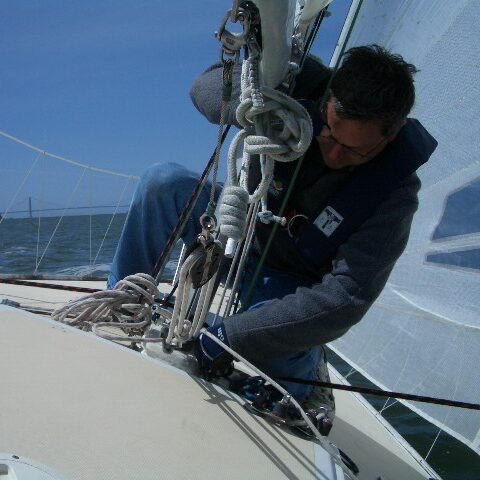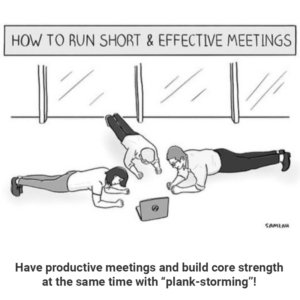 One of the key challenges of teamwork and leadership is when to bring up items of concern and when not to. Should you give the feedback or just let it go? Point out the problem you see (that no one else seems to) or “be supportive” (and see what happens)? One obviously can’t bring up every issue that might be a problem, but in my experience, people tend not to address items that truly need to be brought up. As a result, the issue in most organizations is not too much discussion of difficult issues: it’s that there isn’t enough. We know that silence kills: very bad things can happen when people remain mute.
One of the key challenges of teamwork and leadership is when to bring up items of concern and when not to. Should you give the feedback or just let it go? Point out the problem you see (that no one else seems to) or “be supportive” (and see what happens)? One obviously can’t bring up every issue that might be a problem, but in my experience, people tend not to address items that truly need to be brought up. As a result, the issue in most organizations is not too much discussion of difficult issues: it’s that there isn’t enough. We know that silence kills: very bad things can happen when people remain mute.
When less power means faster progress
There’s an old saying in sailing that has saved many boats (not to mention lives): “if you think it’s time to reef, it probably is.” The reason we need this saying is because reefing – the act of shortening sail in rough weather – is hard to do. Not so hard to actually execute, but hard to decide to do. Why? Because when you need to reef, you are usually moving along quickly, having fun and making progress. Of course, the drawback to this is that an unbalanced boat (or team) is less safe and less efficient, resulting in the need to reef. I have been sailing on San Francisco Bay for many years. The Bay is well known for extreme weather, tides and currents. This makes sailing fun but also quite dangerous if you don’t know what you’re doing.
The typical day is a morning of great sailing; then, in the afternoon, the wind gets fiercer, and the boat heels further and further over. This is so fun! Right?
But, at some point, someone finally gets up the nerve to say “maybe we need to reef?”
Why was this hard to say: because now someone has to (on most boats) go forward and leave the safety of the cockpit; the boat will stop its forward progress in order to make the sail change; and it will stop heading in the direction it’s going. On most boats, this also means releasing different lines in parts of the sails, creating a lot of noise and resulting in a boom that might be flopping around the boat – truly unnerving if you aren’t expecting it.
Needless to say, all this can feel like quite a chore.
But I bet you know another reason why it’s difficult to decide to reef: it’s not macho. It’s always better to be tough than suggest powering down, right?. Sometimes everyone but the skipper can see it. That’s the worst feeling – when the captain’s own ego blinds them. Or maybe the team have set unrealistic goals and fear failure. But, the bottom line is that the boat is not a place where people want to hear about reefing.
Of course, the reality is that the longer you wait to make that decision, the more severe the conditions will be when you finally deal with it. The longer you wait, the harder it gets. Indecision has a clear cost.
A safer boat is a faster boat
The boat is a system designed to work a certain way, and it goes its fastest when it’s trimmed well. The boat is actually more stable, flatter and will go faster. Reefing correctly will help you arrive at your destination sooner (let alone in a much safer manner).
This all seems pretty simple, right?
Yet, I can’t tell you how many times my friends and I have talked a bit too long about “if we should reef”. When you are making progress, it’s hard to make the call, even when you sense the boat is starting to tip too far over and the steering isn’t quite as accurate.
Trust your mind
In The Human Element, Will Schutz writes that if an item is too trivial to be brought up with someone else, it’s probably not something you would be thinking about it in the first place. If something comes into your mind multiple times then it’s time to ask: why does this keep coming up for me?
It certainly can seem very inconvenient to try to discuss the item or issue. We may fear there will be a lot of noise and lines flying around. That boom could swing around and nail us.
Just like out on the water, in organizations and in teams the longer we wait the worse it’s going to get. As such, when we wait until the trouble has gotten so obvious that everyone is screaming for someone to do something (and somebody says “we better reef”), we pass up an opportunity to come up with an easy and simple correction. That said, when we finally do decide to reef, we usually find reefing takes a lot less time than we thought and was not as inconvenient as we feared. We also notice that we are making way much more effectively, efficiently and more enjoyably. Now that we stopped for a moment and trimmed our sails to the actual conditions, we are better off.
I predict you’ll find the same experience when you address the issues in your team. It probably won’t be as bad as you think and you’re in for a big pay off.
Above all, do not punish the person on your team who calls the question. Keep them on the boat. You need their leadership.







